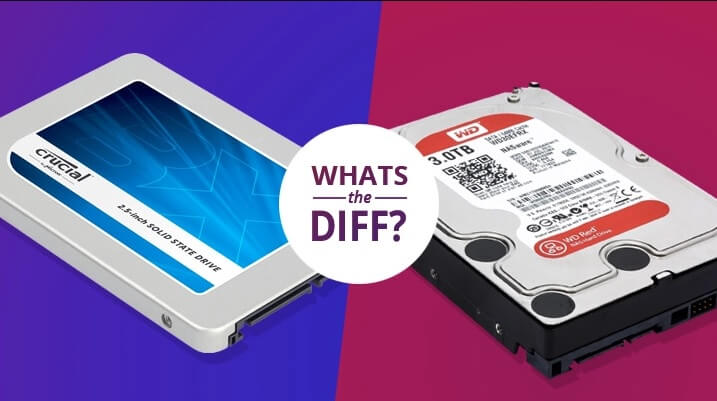In this post we will show you the basic differences in how hard drives work, which are usually the most used today.
First we will put in context that it is a hard disk.
According to Wikipedia, the hard disk drive or hard disk drive is a data storage device that uses a magnetic recording system to store and retrieve digital files.
It consists of one or more plates or rigid disks, coated with magnetic material and joined by the same axis that rotates at high speed inside a sealed metal box. On each plate, and on each of its faces, a read / write head is placed that floats on a thin sheet of air generated by the rotation of the discs.
It allows random access to data, which means that data blocks can be stored or retrieved in any order and not only sequentially. Hard drives are a type of nonvolatile memory, which retain stored data even when turned off.
In this sense there are 2 types of disks, hard disk drives (HDD) and solid state drives (SSD), their differences are very simple and are as follows.
The HDD stores the data on metal plates that are rotating all the time and every time the Computer wants to search for something, the device uses a component called “spindle†(which looks like a needle) to locate the position where the information is and give it to the computer. This same method is used to record information on an HDD.
SSDs, on the other hand, are never moving, so they have in their name "solid state." To store the information they create blocks and every time the Computer wants to access it, the SDD only delivers it. Of course, the process is more complicated, but this is a simple explanation so that you understand that the device is much more efficient and faster than a hard drive.
The advantages of an SSD
Precisely because of the efficient way in which SSDs work, they are the best upgrade you can do to your Computer if you want it to work faster. And, in fact, they can accelerate the operation of a computer in several ways:
The operating system startup time will be significantly reduced, with an SSD you only have to blink approximately twice to start a program or application.
When you save and open documents there will be no lag. Copying and duplicating files will be a less tedious task and with a reduced wait. In general, the system will be faster.
Disadvantages of SSDs
Although its advantages are many given the speed offered by SSDs, the truth is that there is little to complain about. Also, since they are not in constant motion, they are more durable.
The problem comes when we want to buy one, either for a new computer or for one that we want to update. The price is much higher than HDD, but we have a good solution for you.
In Cheap Hard Drives you can find an SSD at an affordable price with a 1 year warranty, CHD offers certified and guaranteed refurbished discs for its proper functioning, if you want to save some money we recommend you visit the site and see for yourself the advantages of buying in CHD.
On the positive side, we have two things in our favor: SSD and HDD can co-inhabit the same computer and operating system, so you can include both.
Also, you have to consider that in 240 gigabytes of SSD you can install an operating system and a few programs so that everything works quickly. And if your budget only allows you to buy an SSD with less storage space, at least try to make it one where you can install an operating system without problems to improve the performance of the Computer.

